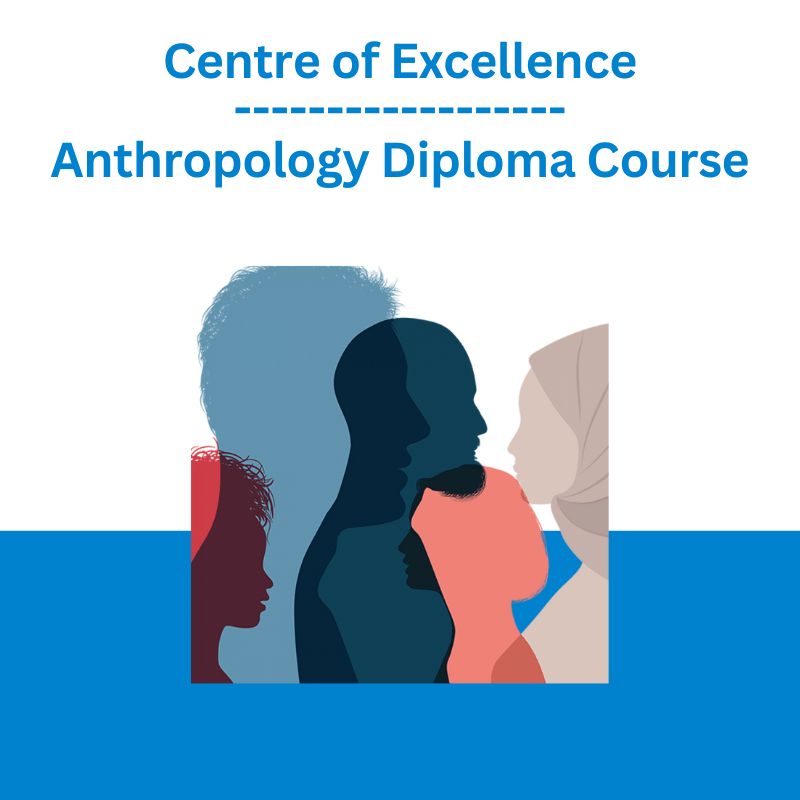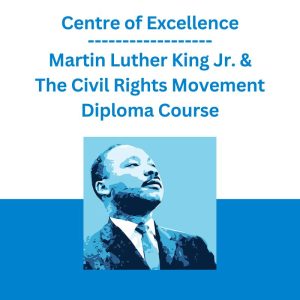*** Proof of Product ***
Exploring the Essential Features of “Centre of Excellence – Anthropology Diploma Course”
What Will You Learn?
At its most elementary level, anthropology is the study of human beings and the story of humankind – making it an incredibly broad subject, encompassing many major disciplines. This course will guide you through the fundamentals.
The Anthropology Diploma Course is designed to equip you with the tools necessary to delve deeply into the world of anthropology. You’ll become familiar with some of the most important anthropological concepts that have been developed over the last century and explore a wide range of anthropological themes, ranging from human evolution to gender identity.
As well as appreciating the broad trends in the development of the discipline of anthropology over the years, you will also encounter dozens of case studies taken from the ethnographic reports of researchers who have lived with various tribes and indigenous cultures around the world.
The course will encourage you to be adventurous, inquisitive and proactive in your study. To constantly ask yourself how certain key concepts relate to your own experience of life in your unique cultural setting.
By studying this course, you will:
- Learn about the history of human evolution
- Become familiar with the basics of linguistic anthropology
- Gain insight into the ways in which humans interact with their bodies
- Examine the relationships that define us as social creatures
- Be introduced to the complex issues of group and individual identities
- Explore the social functions performed by commonly-held beliefs in the supernatural world
- Tackle the fascinating subject of mythology and its relation to the structure of human society
- Become familiar with the varying behaviours exhibited during rituals
- Look in detail at the subject of gender in the field of anthropology
- Gain an introduction into the world of ethnomusicology
Course Syllabus
What will I learn on the course?
Module 1: The Human Story
Introduction
Part 1: What is Anthropology?
Part 2: Explaining the Evolution of Humans
Part 3: No Brain, No Gain?
Part 4: The Rise of Civilisation
Test Your Knowledge
Key Learning Points Exercise
Module 1 Assessment
Module 2: Language
Part 1: What is Language?
Part 2: Language and Culture
Part 3: Language and Identity
Part 4: Language, Prestige and Linguistic Hegemony
Test Your Knowledge
Key Learning Points Exercise
Module 2 Assessment
Module 3: The Body
Part 1: The Body – A Human Universal
Part 2: Modifying the Body
Part 3: Beauty Standards Around the World
Part 4: The Symbolism of the Body
Test Your Knowledge
Key Learning Points Exercise
Module 3 Assessment
Module 4: Ties and Bonds
Part 1: Kinship
Part 2: Marriage
Part 3: Caste and Class
Part 4: Animals – Pets, Family or Food?
Test Your Knowledge
Key Learning Points Exercise
Module 4 Assessment
Module 5: Identity
Part 1: What is Identity?
Part 2: Defining Individual Identity
Part 3: Can We Choose Our Identities?
Part 4: Group Identities
Test Your Knowledge
Key Learning Points Exercise
Module 5 Assessment
Module 6: Taboo and Superstition
Part 1: Explaining the Unknown
Part 2: Communicating with the Spiritual World
Part 3: Witchcraft and Sorcery
Part 4: The Power of Taboo
Test Your Knowledge
Key Learning Points Exercise
Module 6 Assessment
Module 7: Mythology
Part 1: What is Mythology?
Part 2: Origin and Creation Myths
Part 3: Symbolism in Mythology
Part 4: The Flood – A Universal Myth?
Test Your Knowledge
Key Learning Points Exercise
Module 7 Assessment
Module 8: The Power of Ritual
Part 1: What is a Ritual?
Part 2: Religious Rituals
Part 3: Secular Rituals
Part 4: Other Rituals
Test Your Knowledge
Key Learning Points Exercise
Module 8 Assessment
Module 9: Gender
Part 1: Gender and Anthropological Study
Part 2: Feminist Anthropology and the Patriarchy
Part 3: Policing the Female Body
Part 4: Gender as a Social Construct
Part 5: The Development of the Concept of Gender
Test Your Knowledge
Key Learning Points Exercise
Module 9 Assessment
Module 10: Ethnomusicology
Part 1: The Development of Ethnomusicology
Part 2: The Evolution of Music
Part 3: The Social Functions of Music
Part 4: Music – A True Universal?
Conclusion
Test Your Knowledge
Key Learning Points Exercise
Module 10 Assessment
Who Would Benefit from This Course?
The Anthropology Diploma Course is suitable for anyone seeking a broad introduction to the deep world of anthropology – providing a digestible and graded view of the fundamental themes of the discipline, ranging from the simple to the complex.
For the complete beginner, it will function as a step-by-step guide through the most important concepts you need to understand. For those who have a basic knowledge of history, linguistics, politics, religious studies or sociology, the course aims to provide a useful recap of some things you already know and an introduction to some concepts that may be new to you. Even for those with more than a beginner’s level of knowledge, this course will provide a useful opportunity to practice and review familiar concepts.
Please see the full list of alternative group-buy courses available here: https://lunacourse.com/shop/










 Centre of Excellence - Martin Luther King Jr. & The Civil Rights Movement Diploma Course
Centre of Excellence - Martin Luther King Jr. & The Civil Rights Movement Diploma Course  Centre of Excellence - Acrylic Painting Diploma Course
Centre of Excellence - Acrylic Painting Diploma Course  Centre of Excellence - Advanced Digital Photography Diploma Course
Centre of Excellence - Advanced Digital Photography Diploma Course